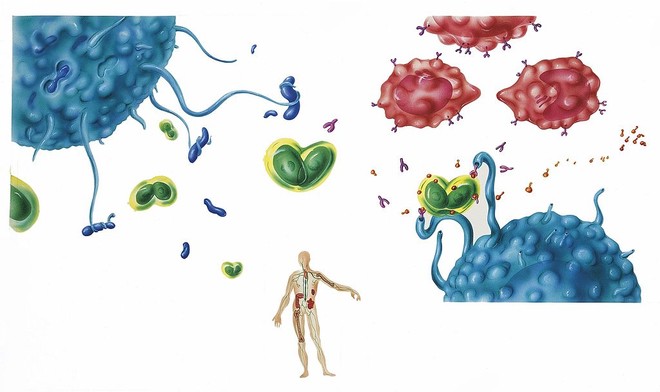 What is the reason, if the child is elevated monocytes? Photo: Getty
What is the reason, if the child is elevated monocytes? Photo: Getty
Causes of elevated monocytes in a child
Doctors have nicknamed these cells "janitors"body, they diligently cleanse the blood of all harmful components. Based on this, the conclusion is that monocytes are elevated in a child - an infection and a serious disease have settled in the body, to combat which the cell is multiplying. This is a kind of distress signal and rescue therapy is urgently needed. To navigate the numbers, adults need to memorize the level of monocytes:
- At the birth of the baby, they should be from 3 to 12%;
- The first two weeks of life - from 5 to 15%;
- From six months to 1 year of age - from 4 to 10%;
- From one year to 16 years of age - from 3 to 9%. In subsequent years, the level of monocytes should not exceed 8%.
If the test results show elevated monocytes inblood of a child, doctors make a diagnosis of monocytosis. There are two types of pathology - relative and absolute. In the first case, the level of cells is normal, but their number prevails over other components - erythrocytes, leukocytes, etc. The problem is easily solved by preventive measures, traditional treatment. In the case of absolute monocytosis, the norms are exceeded by all indicators. The symptom indicates inflammatory processes, infectious diseases and requires urgent detection of the disease. Cells can be intensively produced in such problems as: Toxoplasmosis; Rheumatism; Malaria; Sarcoidosis; Tuberculosis; Lupus; Enteritis; Syphilis; Brucellosis; Colitis; Infectious mononucleosis; · Poisoning with phosphorus or tetrachloroethanol.
Treatment if monocytes in the blood of a child are elevated
To regulate monocyte levels,it is necessary to treat the underlying cause of the pathology - the disease that caused the cell growth. As soon as the treatment therapy eliminates the inflammation, tumor, and gets rid of infections, the cell level will return to normal after a while. Often, the reason for the increase in the number of monocytes can be banal teething, the period of recovery, recovery after surgery. Whatever the reason, it will not be superfluous to check and fully examine the baby's body. Perhaps this is his individual feature and there is no reason to worry. Also interesting:









